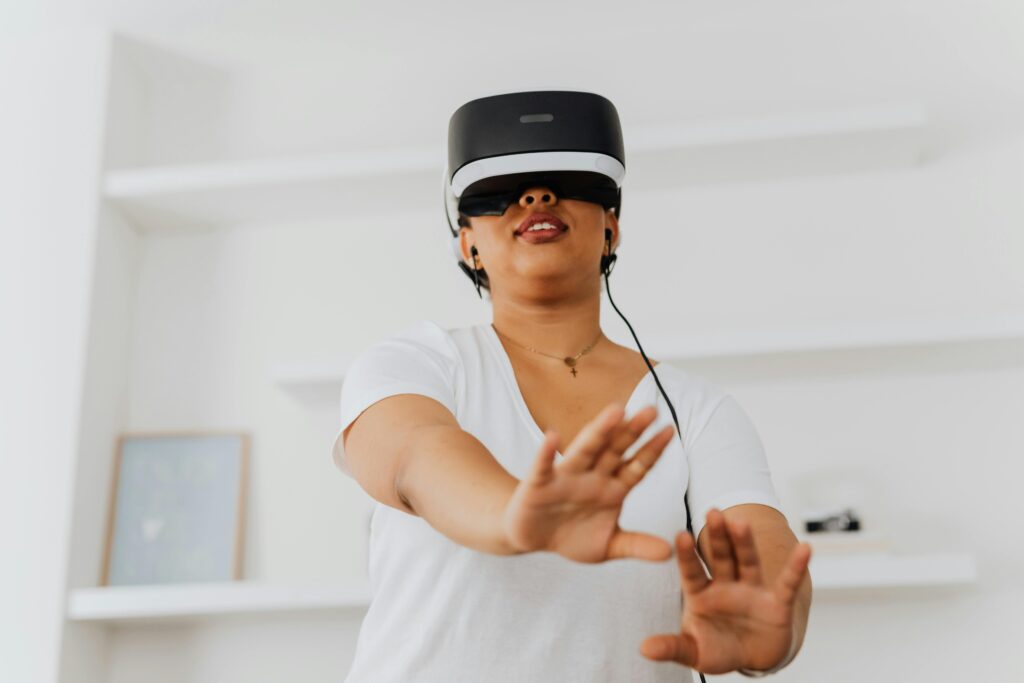In the digital age, the concept of reality is transforming. From virtual reality headsets to augmented reality apps, and from artificial intelligence shaping virtual worlds to real estate investments in a post-AI era, reality has expanded beyond what we see with our eyes.
If you want to invest your time and money into something truly meaningful, understanding how reality is evolving will give you a competitive advantage.
In this guide, we will explore:
- What reality means in the digital era
- How virtual reality (VR) is creating new industries
- The power of augmented reality (AR) in everyday life
- How AI is blending with reality
- The state of real estate investments in an AI-driven world
- The future of “reality” as an asset class
Let’s dive in.
What Does Reality Mean in 2025?
Reality traditionally refers to the state of things as they actually exist. However, with technological advancements, the boundary between what is “real” and what is “digital” is fading.
For instance:
- Virtual reality (VR) creates immersive digital environments.
- Augmented reality (AR) overlays digital information onto the real world.
- Artificial Intelligence (AI) generates hyper-realistic images and videos.
- Digital real estate in metaverses is being bought and sold like physical land.
This expansion of reality is not just a philosophical discussion; it is a massive economic opportunity.
High CPC keywords:
- virtual reality investment
- augmented reality development
- real estate investment strategies
- AI in real estate
- AR apps for business
- VR headset deals
The Virtual Reality (VR) Boom
Virtual reality is revolutionizing industries from gaming to healthcare. According to recent reports, the VR market is projected to reach $100 billion by 2030, creating massive opportunities for investors, developers, and entrepreneurs.
1. VR in Gaming and Entertainment
Gaming remains the biggest driver of VR adoption. Devices like the Meta Quest 3 and PlayStation VR2 have made immersive gaming experiences mainstream.
Why it matters for high CPC:
- VR gaming accessories
- VR gaming headset reviews
- VR game development services
2. VR in Healthcare
VR is being used for:
- Surgical training
- Pain management
- PTSD treatment
- Physical therapy simulations
These applications are attracting high CPC advertisers in:
- Health tech
- VR medical training
- VR therapy apps
3. VR in Education
Virtual classrooms allow immersive, distraction-free environments for learning:
- Virtual lab simulations
- Historical event recreations
- Language immersion programs
Educational VR platforms attract high-value ads for:
- Online education tools
- VR content development
- eLearning software
Augmented Reality (AR) in Everyday Life
Unlike VR, which creates a fully digital environment, AR overlays digital content onto the real world. AR is used in:
- Snapchat and Instagram filters
- AR shopping experiences (try-before-you-buy)
- AR navigation in Google Maps
- Industrial maintenance and training
The AR market is expected to reach $200 billion by 2030, fueled by demand in:
- AR mobile app development
- AR shopping platforms
- AR advertising
AI and Reality: The Rise of Generative Reality
Artificial intelligence is shaping reality in unexpected ways:
- Generative AI creates hyper-realistic images, voices, and videos.
- AI-driven virtual influencers are replacing human models in marketing.
- AI is used to create digital twins for real estate, manufacturing, and healthcare.
These developments are driving:
- AI content generation services
- AI in healthcare solutions
- AI-powered virtual assistants
Advertisers pay premium CPC for:
- AI automation software
- AI in business
- AI content creation tools
Real Estate in the Age of AI and Virtual Worlds
Real estate remains one of the most reliable investment vehicles globally, but even this industry is being reshaped by technology.
1. Virtual Real Estate in Metaverses
Platforms like Decentraland, The Sandbox, and Otherside are selling parcels of virtual land for thousands of dollars. Brands like Adidas, Gucci, and Snoop Dogg are building virtual experiences on these lands.
High CPC keywords:
- metaverse real estate investing
- buy virtual land
- NFT real estate
2. AI-Driven Real Estate Analytics
AI is used to predict property values, optimize rental pricing, and identify high-growth areas for investment. Tools like Zillow’s Zestimate, Redfin’s AI models, and custom PropTech solutions use machine learning to analyze market trends.
High CPC areas:
- real estate investment tools
- AI real estate analytics
- best real estate markets
3. Virtual Tours and Digital Twins
3D virtual tours powered by AR/VR and AI-generated digital twins of properties enable buyers to explore homes remotely.
High CPC topics:
- 3D real estate photography
- virtual home staging
- virtual real estate tours
How to Profit from the Reality Revolution
1. Invest in VR/AR Stocks
Companies like Meta, Apple, Nvidia, and Unity are leaders in AR/VR development.
2. Build AR/VR Applications
If you’re a developer, consider AR apps for retail, education, or real estate as they have high monetization potential.
3. Explore Virtual Real Estate
Buying virtual land and developing branded experiences in the metaverse can yield returns, but research carefully as it carries risks.
4. Create Content on AR/VR and AI
Blogging, YouTube channels, and TikTok content about:
- VR headset reviews
- AR app showcases
- AI productivity tools
attract high CPC ads while growing your audience.
The Challenges of the New Reality
Despite the opportunities, the reality revolution faces challenges:
- Privacy Concerns: AR glasses and VR headsets can collect sensitive data.
- Accessibility: High-quality VR headsets remain expensive for many.
- Addiction Risks: Overuse of immersive technologies can impact mental health.
- Regulatory Issues: Virtual land ownership and AI-generated content face unclear legal frameworks.
Addressing these issues while innovating is essential for sustainable growth.
The Future of Reality: A New Asset Class?
Reality itself is becoming a monetizable asset class:
- Virtual experiences
- AR overlays
- Digital real estate
- AI-generated environments
These are opportunities for:
- Investors seeking high returns
- Developers aiming to create the next big app
- Entrepreneurs building reality-driven brands
Final Thoughts: Embrace the Reality Revolution
Reality is no longer limited to what we can touch and see. Virtual reality, augmented reality, and AI are expanding what it means to live, work, and play.
For investors, this means looking at new forms of assets like virtual land and AI tools.
For entrepreneurs and developers, it means building tools and platforms for AR/VR.
For everyday users, it means adopting tools that enhance productivity and learning while being mindful of privacy and health.
The reality revolution is here, and those who understand and embrace it will thrive in the coming decade.


